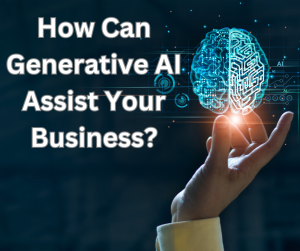What is generative artificial intelligence, embedded in applications such as ChatGPT? How could it help your business? What pitfalls should you avoid. What policies should you craft around it?
This is no longer science fiction. AI has become a reality and every business will be impacted by its use and application and your business must get on board with dealing with it and using it.
The “GPT” in ChatGPT stands for generative pretrained transformer, which is used by a large language model (“LLM”) that has learned, based on millions of inputs, to generalize the common rules of language and information, and thus predict what’s next in a written sequence. The algorithms used to create new data patterns or sequences seem human-like at times, given the written, audio and video generated that can be generated based on the inputs.
However, at its current state, generative AI does not “reason” in any actual sense. It’s just a more advanced version of auto-complete. For that reason, no one should solely rely on a use of GenAI as an authority on any topic. AI doesn’t know what it doesn’t know, and yet it often acts as if it does, doubling down on “hallucinated” information. It’s also certainly not about to turn into a sentient being like Skynet in “Terminator.” But GenAI is evolving quickly and can be useful to businesses that experiment with it and carefully assess the results.
Why this is important to your business
In one word – innovation.
Every business must understand and meet the needs of its customers. It allows your business to stay relevant in a changing market and empowers your relationship with your customers. Innovation creates growth opportunities for your business. Every successful business embraces innovation.
Choosing a Tool
In choosing a GenAI tool, businesses need to consider several factors. They should research the ideal use cases for their type of products or services as well as whether there are limits on its use. They need to investigate whether it provides adequate security, particularly if they need to comply with data protection laws like HIPAA. They need to determine how they’re allowed to use AI-generated content and what restrictions exist on commercial use or distribution—or copyright and indemnification policies.
Another consideration is the managing of data—and whether the model becomes trained on the user’s interactions, whether they can be fully deleted, and whether they can be accessed, archived or reviewed in any way. Users will want to know what type of data was used to train the model, how often it’s retrained, and whether it’s open source or proprietary. And lastly, the bottom line: how is the pricing structured, are there hidden or add fees, and whether and how much training and support is included in the package.
Crafting AI Policy
In putting together an internal-use AI policy, small businesses need to consider legal concerns such as copyright and privacy, given the data that “trains” generative AI systems, as well as potential confidentiality concerns based on the data input. In addition, one must keep in mind that generative AI can “hallucinate” nonexistent information or facts.
Generative AI policies should be developed in all types of businesses, but especially those in creative fields given that it’s more likely to be used. The policy should talk about when and how employees can use AI to assist with tasks and make them easier, what types of information can be shared in a prompt—and what is considered inappropriate or prohibited. Your answers to these questions are based partly on your risk tolerance—there is no precise right or wrong answer.
Among the risks to consider in doing so:
- Confidential information could get leaked if an employee inputs it into the prompt—and depending on the terms and conditions for the platform, that platform might thus own it.
- Since generative AI has built-in biases based on the humans whose biases it soaks up from the information it synthesizes, using AI in hiring decisions could violate the Civil Rights Act, according to the U.S. Equal Opportunity Commission.
- New GenAI products could pose risks related to either the Illinois Biometric Information Protection Act and/or the Illinois Artificial Intelligence Video Interview Act that protect against identity theft.
- There are also copyright-related issues: The U.S. Copyright Office has held that the “original works of authorship” that the U.S. Copyright Act protects must be created by a human, while GenAI systems can violate copyright law either based on the data sets that trained them, or because they create “new” works that plagiarize existing ones.
As you enter the GenAI age, do so with intentionality and cautiousness—and don’t become hallucinatory about what it can or can’t accomplish for you.
 Chicago Business Attorney Blog
Chicago Business Attorney Blog


